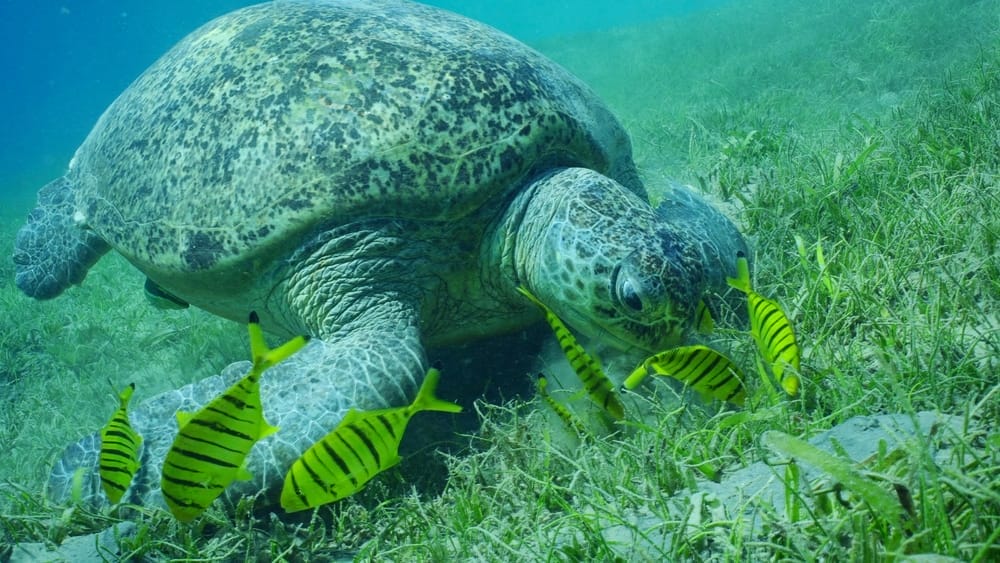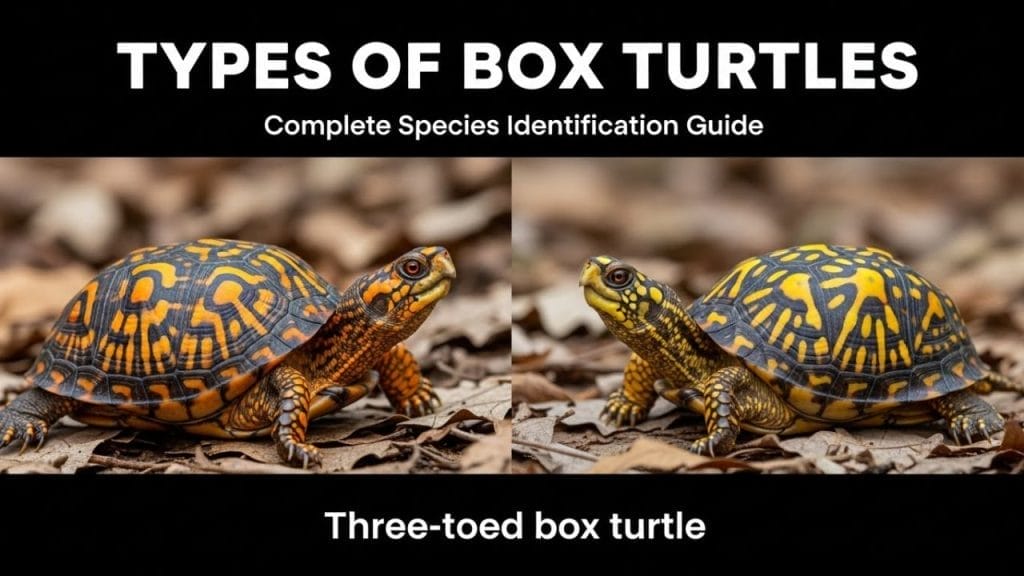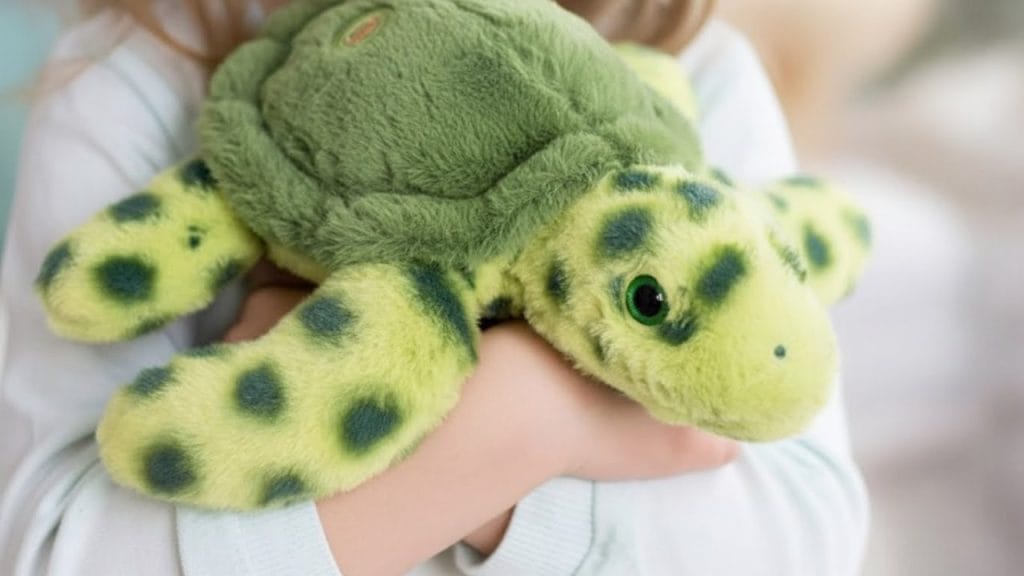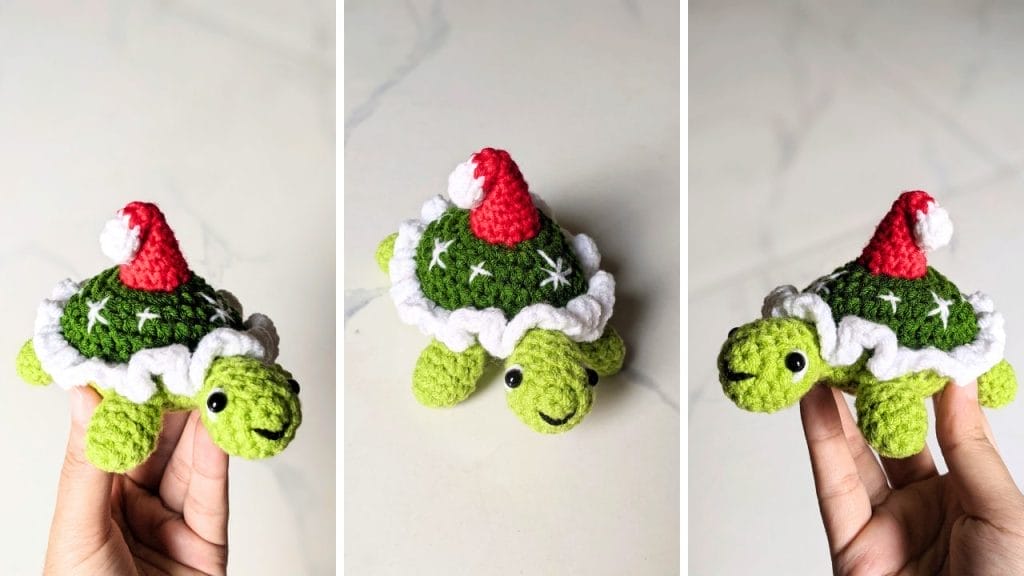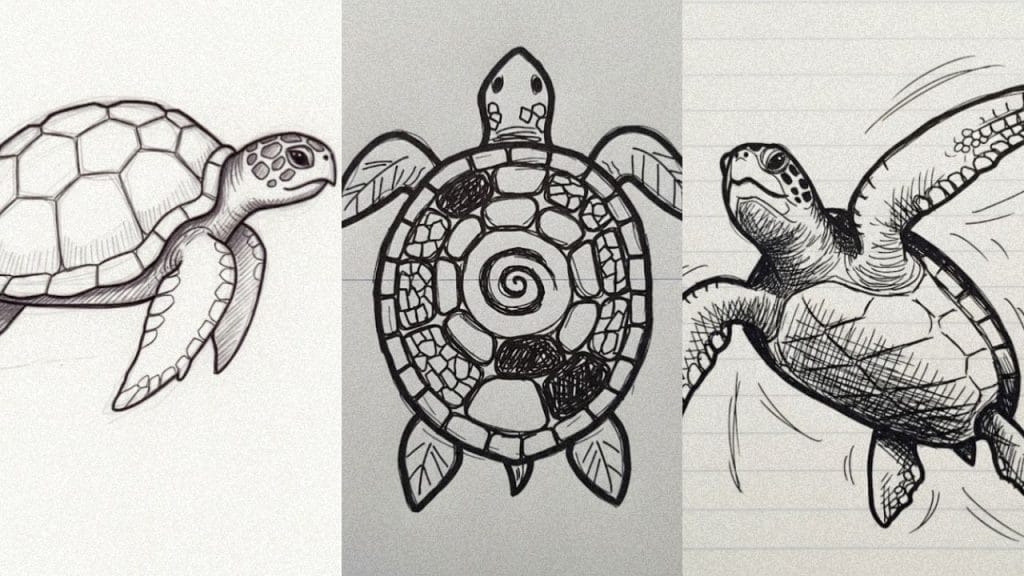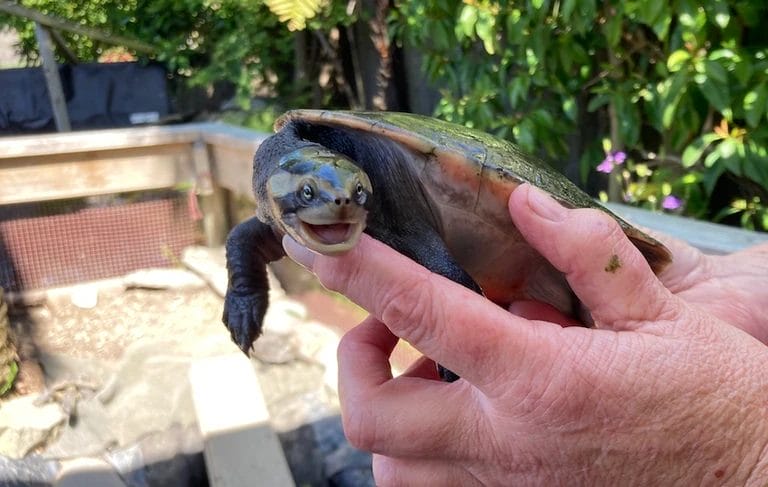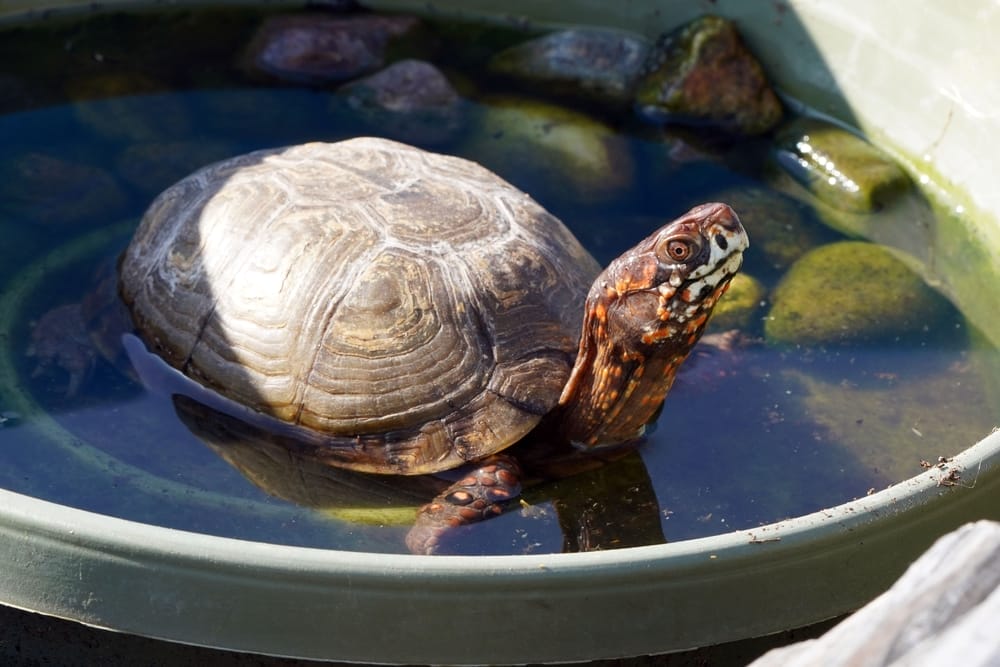Can Tortoises Recognize Their Owners & Express Love?
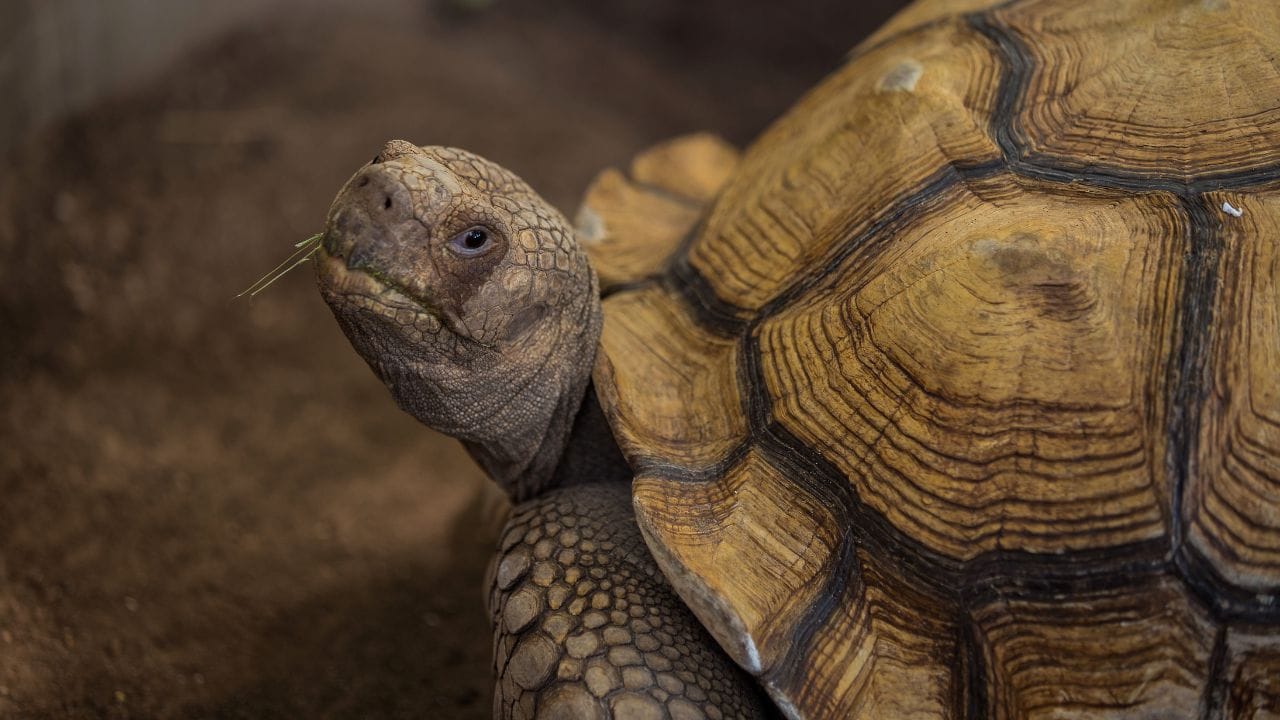
This post was created with help from AI tools and carefully reviewed by a human (Muntaseer Rahman). For more on how we use AI on this site, check out our Editorial Policy.
When pets express appreciation, it’s a wonderful feeling for their owners. Although tortoises make great pets, they aren’t exactly recognized for being the friendliest of animals. You could be concerned, though, about whether or not they can even recall you as the caregiver.
Tortoises are capable of and often do, recognize their humans. Although tortoises are not often regarded as friendly pets, they are capable of learning to recognize their owners. Tortoises communicate their affection via their body language, sense of smell, and even sounds.
Tortoises have a reputation for being notoriously difficult to detect whether they recognize their owners. Tortoises, like other reptiles, display fondness in quite different ways than a domesticated mammal could. To really appreciate your tortoise’s love, it helps to know the signs of recognition they’ll use with you.
Let’s go a little further into this subject and try to address some of the most pressing concerns you might have. Don’t stop reading until you find out how to detect whether your tortoise recognizes you for sure!
Can Pet Tortoises Recognize Their Owners?
Establishing a solid foundation of mutual respect and trust with your companion tortoise might be a lengthy process.
If at first, your tortoise seems uninterested in you, don’t take it personally. Tortoises are not typically friendly pets. They will not rush up to you or want to climb onto your lap.
Tortoises that recognize their owners may exhibit familiarity by remaining still and tranquil, calm and relaxed in your presence.
It’s a good sign that your tortoise is familiar with and relaxed in your company if it chooses to hang around or explore the room with you.
Your tortoise may sometimes express curiosity about what you’re doing by staring at you intently from a range.
One of the biggest factors in whether or not your tortoise recognizes you is the level of trust you’ve built up with it.
If you think about it, whenever your pet tortoise senses danger or feels frightened, then it might try to hide within its shell.
However, when your pet tortoise associates you with security and affection and also as the source of an every-now-and-then delectable treat, it will likely act according to the positive feelings it has about you.
When you approach, your tortoise may extend forth their neck as a gesture of faith and, more significantly, the need for a neck rub.
You may help your pet tortoise identify you and develop a trusting relationship with you by speaking to it often.
If you have your tortoise for a long enough period of time, you also might start to just see them react to your voice.
It seems that even the timidest and most frightened tortoise does learn to identify its owner, according to personal anecdotes from other tortoise owners.
Some tortoises have anxious personalities and don’t perform well among outsiders, yet with their owners, they act habitually.
If you sit down next to your tortoise, it may begin to approach you without being prompted. Your tortoise can pick up on this if you call it by its name when you talk to it.
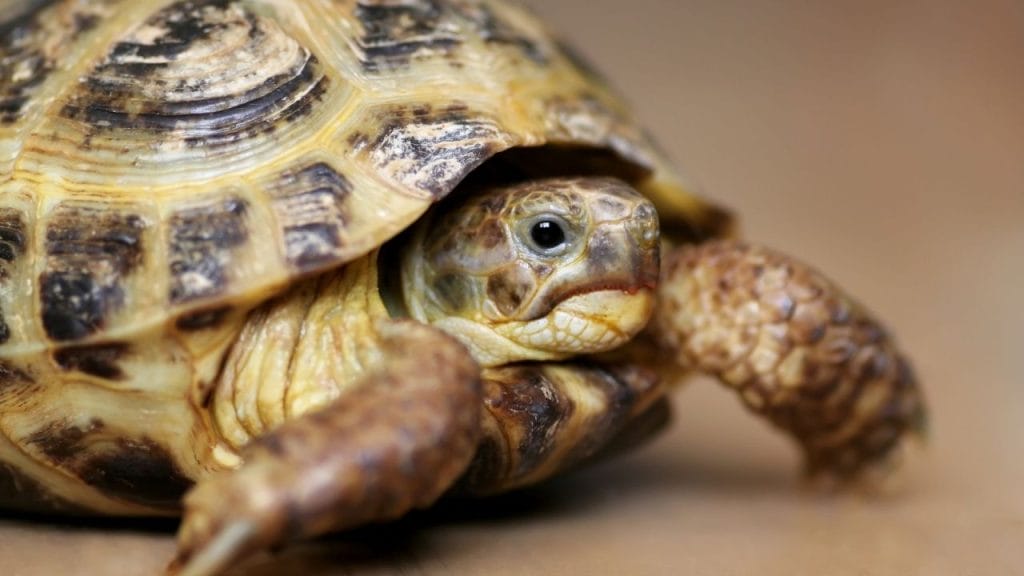
Are Tortoises Able To Form Attachments To Their Owners?
It might be hard to tell whether the affection and devotion you have for your tortoise is mutual since reptiles are really not typically sociable or passionate animals.
Identifying the signs of affection in your pet tortoise is a lot simpler if you understand what to search for.
When a tortoise becomes attracted to its owner, it will contact the person of its own initiative, in search of affection.
Your tortoise could shut its eyes or stretch out its neck to indicate that it enjoys being in your company and would like a neck massage.
It may take some time to establish a strong relationship with your tortoise, but the rewards will be worth it in the end.
Constructing trust takes time. Your tortoise needs time to get used to your presence, including your scent and your speech.
Another fantastic method for developing a strong relationship of trust with your tortoise is to feed it by hand.
We advise only doing so on rare occasions, but when you do, make it a point to really appreciate the time you spend with your pet. Keep up the conversation as you feed your tortoise so that it associates you with the reward.
This Hilarious Turtle Book Might Know Your Pet Better Than You Do
Let’s be real—most turtle care guides feel like reading a textbook written by a sleep-deprived zookeeper.
This one’s not that.
Told from the snarky point of view of a grumpy, judgmental turtle, 21 Turtle Truths You’ll Never Read in a Care Guide is packed with sarcasm, sass, and surprisingly useful insights.
And hey—you don’t have to commit to the whole thing just yet.
Grab 2 free truths from the ebook and get a taste of what your turtle really thinks about your setup, your food choices, and that weird plastic palm tree.
It’s funny, it’s honest, and if you’ve ever owned a turtle who glares at you like you’re the problem—you’ll feel seen.
Do Tortoises Remember You?
According to research carried out in both the United States and the United Kingdom, tortoises have excellent long-term memory. Especially those associated with food.
Tortoises are able to create long-lasting connections or memories, which they may retain for approximately 18 months. Even if they are not subjected to the stimuli for significant amounts of time.
Therefore, it is possible that your pet tortoise will recall you in a certain form if you have spent time cultivating a trusting relationship with it over the course of some period of time.
It might be the sound of your voice, the scent you leave behind, or the feel of your touch that they recall most.
The necessity to locate, maintain, and recall reliable food supply in the wild drove their development, which resulted in their having great long-term memory.
Because of this, there is a good chance that your pet tortoise will recall you if you offer its food and deliver it to it on a consistent basis.
How Does Your Pet Tortoise Perceive You?
You may count on being recognized by your tortoise, and it will be able to know you apart from any other human being.
In addition to taste, touch, and hearing, tortoises also have excellent vision and a keen sense of smell. They have no trouble identifying you by sight, sound, and smell.
Let’s find out what your pet tortoise thinks of you now that you know it can identify you. You may be surprised to learn that they see you primarily in the role of a food provider.
I realize that this isn’t what you were looking for, and it doesn’t seem very good, but you need to realize that this is significant to tortoises.
You are meeting a critical necessity for them, which is much appreciated. They have no idea that you are additionally making sure they are safe and providing them with a spot to sun themselves.
Your tortoise will learn to depend on you since you are the one who consistently delivers its food. This is a wonderful way to put it.
It’s not quite the same as the trust that you and I have in one another. They show you their assurance by acting cooperatively and not aggressively. So, although they won’t bite you if you touch them, they could bite someone they don’t know.
Considering the tortoise’s somewhat backward mental capabilities, the level of respect it displays for you is perhaps the highest you can hope for.

How Do Tortoises Express Their Affection?
When it comes to demonstrating their affection for one another, tortoises, much like other reptiles, are not necessarily the most outspoken creatures.
Tortoise owners sometimes find themselves the recipients of their pets’ cryptic expressions of love and devotion.
You can tell whether your tortoise likes you by looking for a set of behaviors and body language indicators that indicate a positive emotional connection.
One of the most important things to observe is whether or not your pet tortoise seems peaceful and at ease while you are around.
This is evidence that your tortoise trusts you implicitly and enjoys being in your company. In time, the tortoise may also show their devotion by reaching its neck out for additional strokes when you pet them or by pushing your hand or your arm when you serve them.
Yes, we weren’t kidding when we claimed a tortoise’s displays of affection are understated. While it may seem little, it may mean the world to an owner when their pet tortoise relaxes and enjoys being in their company.
You should expect your tortoise to grow more loving with time spent getting to know each other, just as is the case with most other pets.
Affectionately treat your pet tortoise while you are with them by doing the following:
- Consistency is essential when developing a mealtime regimen, such as setting regular meal and snack times.
- Carefully petting and caressing your tortoises,
- Keeping track of what kinds of food your pet tortoise like and giving them more of them,
- chatting with your tortoise whenever possible.
Through this kind of interaction, you and your tortoise may develop a close bond, which is rewarding for both of you.
Are Tortoises Capable Of Love?
There is substantial discussion over the existence of sentiments in tortoises as well as other reptiles.
Some people believe that tortoises and other reptiles don’t feel love because it’s not in their best interest to do so.
Yet there’s evidence from their actions that they can identify and react favorably to the people who care about them.
Tortoises are known to demonstrate a variety of emotions, including a preference for the individuals who feed and manage them.
Final Thoughts
It is not uncommon for tortoises to be able to identify their owner and react appropriately when they see them.
Tortoises are wonderful companion animals and are capable of displaying signs of devotion that will make your heart flutter.
Spending time in your tortoise’s care will enable you to create a trusting link with it, and your tortoise will come to know you as someone who is there to protect them and who does not want to do them any harm.

About Author
Muntaseer Rahman started keeping pet turtles back in 2013. He also owns the largest Turtle & Tortoise Facebook community in Bangladesh. These days he is mostly active on Facebook.


